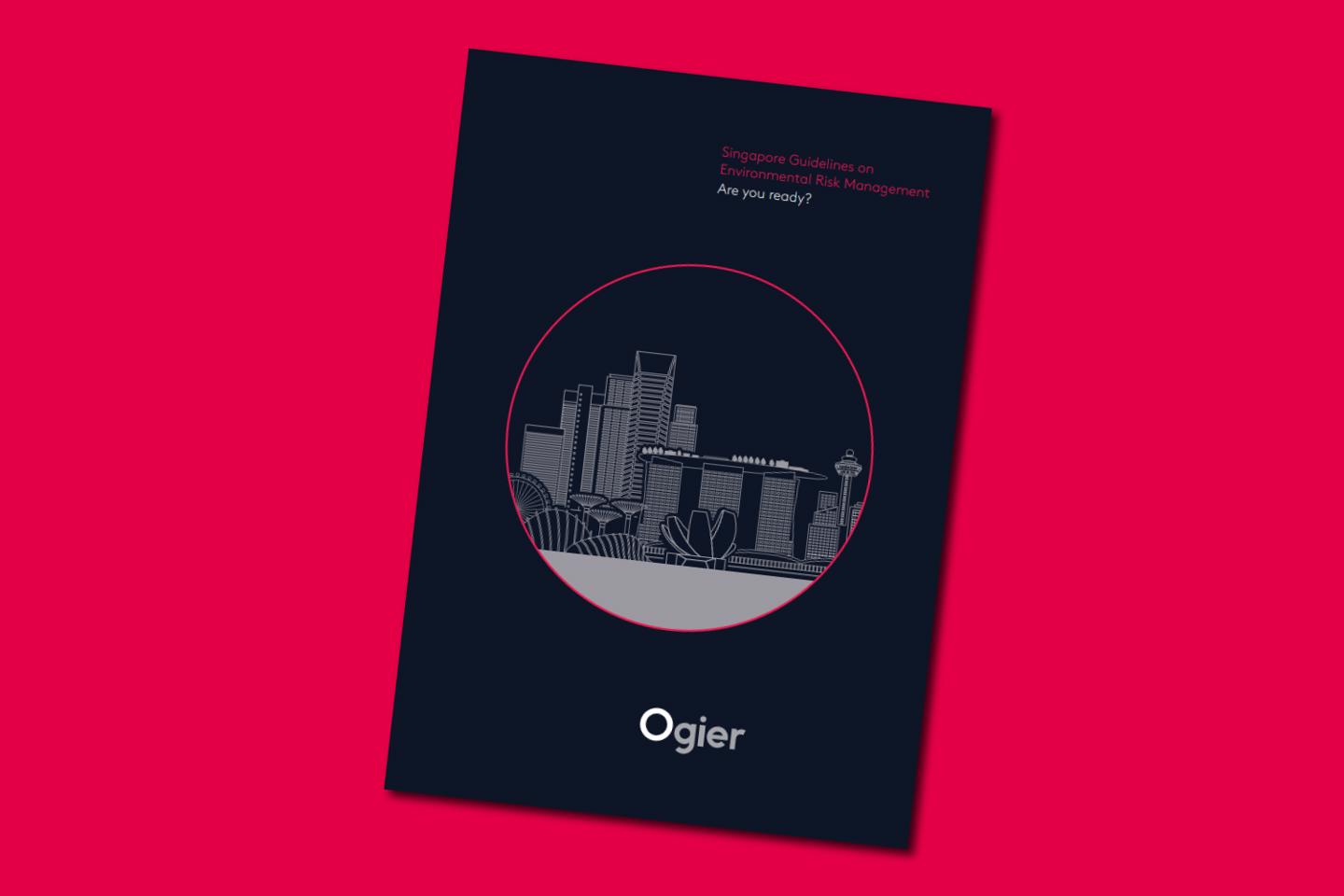
Leonie Kelly
Head of Sustainable Investment Consulting | Consulting
Hong Kong

Leonie Kelly
Head of Sustainable Investment Consulting
Hong Kong
No Content Set
Exception:
Website.Models.ViewModels.Components.General.Banners.BannerComponentVm

On 8 December 2020, the Monetary Authority of Singapore (MAS) released its final Guidelines on Environmental Risk Management (the Guidelines) for banks, insurers and asset managers.
Many banks, insurers and asset managers are now working towards alignment with the Guidelines.
The Guidelines aim to enhance the resilience of financial institutions to environmental risk and strengthen the role of Singapore's financial sector in supporting the transition to an environmentally sustainable economy.
The Guidelines will apply to fund management companies registered in Singapore, as well as the holders of a capital markets licence for fund management and real estate investment trust management in Singapore. Asset managers that do not have discretionary authority over the investments of the funds/mandates they are managing are not covered. CMS licence holders for fund management (LFMC) and REIT management, and registered fund management companies (RFMC) are in scope.
Asset managers may implement the Guidelines in phases, but are expected to showcase their implementation progress over the 18 month transition period outlined by MAS. MAS plans to engage large asset managers from Q2 2021.
There are four key aspects asset managers should be aware of ahead of this including:
Singapore MAS define environmental risk as risks that arise from the potential adverse impact of changes in the environment on economic activities and human well-being. Environmental issues that are of concern include climate change, loss of biodiversity, pollution and changes in land use. These environmental challenges call for urgent collective actions to address environmental risk. The Guidelines therefore encompass risks beyond climate change alone.
The Guidelines detail three risk channels including physical, transition and reputational risk as detailed here.
a) Physical risk arises from the impact of weather events and long-term or widespread environmental changes.
b) Transition risk arises from the process of adjustment to an environmentally sustainable economy, including changes in public policies, disruptive technological developments, and shifts in consumer and investor preferences.
c) Reputational risk can arise when asset managers invest into companies that carry out business activities which have a negative impact on the environment.
The measurement of climate-related risks for investors is still an emerging field. To assist with this, the Task Force on Climate-related Financial Disclosures (TCFD) was established in 2015. TCFD provides recommendations for investors to identify risks and opportunities from climate change and for organisations to improve the standard of climate-related financial disclosures. The Guidelines is generally aligned with TCFD, which focus on climate-related risks only. The TCFD framework principally recognises physical and transition risks, with the MAS electing to also include a standalone "reputational risk" category described above.

Note: this is a summary only, complete information can be found in the MAS Guidelines
Find out more about our Sustainable Investment Consulting here.

Leonie Kelly
Head of Sustainable Investment Consulting | Consulting
Hong Kong

Leonie Kelly
Head of Sustainable Investment Consulting
Hong Kong

Kasia Zatorska
Senior Manager, Sustainable Investment Consulting | Consulting
Hong Kong

Kasia Zatorska
Senior Manager, Sustainable Investment Consulting
Hong Kong

Shirley Lo
Manager, Sustainable Investment Consulting | Consulting
Hong Kong

Shirley Lo
Manager, Sustainable Investment Consulting
Hong Kong
Sign up to receive updates and newsletters from us.
Sign up
No Content Set
Exception:
Website.Models.ViewModels.Blocks.SiteBlocks.CookiePolicySiteBlockVm